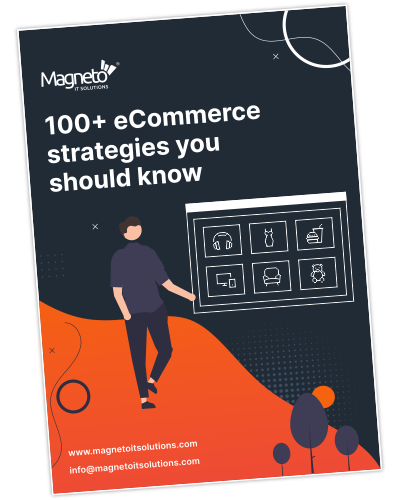It fascinates me the B2B wholesale business ecosystem. I’ve heard stories about entrepreneurs spending countless hours a day deciding whether they have enough goods to make shipments, with buyers dialing around to confirm price and availability and taking a long time, and suppliers scrambling to know who bought what. It’s watching a skilled chef try to make a meal with one hand tied behind its back.
There is a lot of motivation and talent, but everyone is crippled with tools. Not only is it infuriating, but it is cutting into profit and increasingly making it challenging for these companies to expand and compete in today’s times. On a positive note at least, Saudi Arabia’s B2B eCommerce sector is transforming as ever.
Locally, providers and wholesales are eager to introduce digital transformation. Ask any businessman in Riyadh or Jeddah, and they will delight you with tales of how Vision 2030 prompted everyone to re-imagine technology. Yet, many wholesale companies are trapped in conventional thinking.
Imagine loads and loads of stacks of paper invoices, endless phone calls to check stock levels, and the constant headache of tracking orders through spreadsheets and WhatsApp messages. It’s a terrible way of working to be honest.
In an era when accuracy, speed, and automation have become imperative, B2B eCommerce wholesale software is a cutting-edge technology. With evolving tech innovations for wholesalers, organisations can streamline key processes like SCM and order fulfillment, maximise customer relations, and make transactions easier.
Let us go through some world-class b2b eCommerce software solutions, their key features, and benefits that might intrigue you.
How B2B eCommerce Software Changes Everything?
Think of B2B wholesale software as the behind-the-scenes powerhouse that’s revolutionising how businesses buy and sell from each other. While regular online shops are built for individual shoppers buying a few items, wholesale platforms are designed for the heavy lifting of business deals – we’re talking massive orders, custom pricing deals, and complex shipping arrangements.
What makes these systems special is how they adapt to each business relationship. A manufacturer can give different prices to different buyers based on their order volume, just like they would in person. It’s like having a digital showroom that knows exactly what each customer needs and how much they should pay.

The real magic happens in automation. Instead of shuffling papers and trading emails back and forth, buyers can hop online anytime to place their orders, check what’s in stock, and track their deliveries. Meanwhile, sellers can keep their product catalogs up to date, monitor their inventory levels in real-time, and have everything synced perfectly with their existing business software.
It’s basically turning those old-school wholesale relationships into smooth digital partnerships without losing the personal touch that makes B2B business work. And the best part? Everyone saves time, which they can spend growing their business instead of pushing papers.
Key Features of B2B eCommerce Wholesale Software
1. Custom Pricing & Bulk Discounts
The heart of any wholesale platform lies in its pricing capabilities. Modern systems excel at managing complex pricing structures, offering instant bulk quotes, and implementing customer-specific rates. This allows wholesalers to maintain competitive pricing while preserving their profit margins through automated markups and discounts.
2. Smart Order Management
Intelligent order management transforms how bulk purchases are handled. The system can automatically validate orders, check inventory levels, and trigger fulfillment workflows. This reduces processing time from hours to minutes while virtually eliminating costly errors.
3. Seamless Integration with ERP & CRM
Today’s wholesale platforms act as central hubs, seamlessly connecting with accounting software, warehouse systems, and customer databases. This creates a unified ecosystem where data flows automatically between systems, keeping everyone on the same page.
4. Strategic Access Control
Think of it like this—everyone in a company has their own key to the rooms they actually need. A salesperson doesn’t need access to warehouse inventory controls, and a warehouse worker doesn’t need financial reports. Modern platforms set these digital “keys” with fine-tuned permissions, making sure each person gets exactly what they need to do their job—nothing more, nothing less. This keeps things running smoothly while preventing security risks or unnecessary distractions.

5. Flexible Payment Options
B2B payments can be tricky, but this software makes them easier. It handles everything from old-school purchase orders to fast digital payments, giving businesses the flexibility they need. Need to split a payment across departments? Offer credit terms to a trusted partner? No problem. The system adapts to the way your business works, so transactions feel seamless instead of frustrating.
6. Advanced Inventory Management
Real-time inventory tracking across multiple locations helps prevent costly stockouts and overstock situations. The system provides smart alerts, automates reordering, and maintains accurate stock levels across all sales channels.
7. Mobile Accessibility
Businesses need the freedom to operate anytime, anywhere. Saudi Arabia is no exception, with mobile usage at an all-time high. Wholesale platforms are stepping up, offering mobile apps that let buyers browse products, place orders, and track shipments effortlessly. It’s all about seamless convenience—keeping business in motion, no matter where you are.
8. Self-Service Portals for B2B Buyers
Nobody wants to wait around for a sales rep just to check a price or reorder something they buy all the time. That’s why self-service portals are a game-changer. Buyers can log in, see pricing, track their orders, and reorder products whenever they need to—no emails or phone calls are required. It makes the whole process smoother for customers while saving businesses time and money.
9. Multi-Currency & Multi-Language Support
Businesses must speak their customers ‘ language when selling in the Gulf Cooperation Council (GCC) region. A B2B eCommerce platform that supports multiple currencies and languages, including Arabic, makes buying more comfortable for diverse audiences. It also builds trust and boosts repeat business. Moreover, with built-in currency conversion, cross-border transactions become smoother, helping businesses grow beyond their home markets.
Top B2B eCommerce Wholesale Platforms for the Saudi Market
When choosing a platform, make allowances for its compatibility, integration, and scalability with your personalised requirements in your target marketplace. Having a platform with localisation options, such as language capabilities for Arabic and multi-currency payments, can make your business even more adaptable in Saudi Arabia.
1. Adobe Commerce
Why Magento for B2B?
Highly customizable with robust B2B features like personalised pricing, contract-based discounts, and ERP/CRM integrations.
Key Features:
- Personalised pricing and contract-based discounts
- Quotation and negotiation tools
- Multi-store capabilities for regional expansion
- ERP and CRM integrations
Best for:
Mid-to-large-scale wholesalers who need a fully customizable, feature-rich platform.
Shopify Plus
Why Shopify Plus for B2B?
Shopify Plus is distinguished for its ease of use and quick setup. It comes packed with robust B2B features and seamless third-party software integration.
Key Features:
- Custom wholesale storefronts
- Automated bulk order processing
- Flexible payment options for B2B transactions
- Easy integration with accounting and inventory systems
Best for:
B2B SMEs and startups looking for a user-friendly, scalable solution.
BigCommerce B2B Edition
Why BigCommerce for B2B?
BigCommerce B2B Edition provides a powerful suite of tools designed specifically for wholesale operations.
Key Features:
- B2B-specific payment methods and invoicing
- Account-based pricing structures
- Advanced inventory management
- Multi-channel selling options
Best for:
Businesses that need an out-of-the-box B2B solution with powerful integrations.
4. SAP Commerce Cloud
Why SAP Commerce Cloud for B2B?
SAP Commerce Cloud is an enterprise-level solution built for global businesses with complex B2B needs.
Key Features:
- AI-driven personalisation for wholesale buyers
- Sophisticated order management and fulfillment systems
- Strong analytics and reporting capabilities
- Scalable architecture for enterprise-level businesses
Best for:
Corporations and large wholesalers with complex B2B needs.
5. Salesforce Commerce Cloud
Why Salesforce Commerce Cloud for B2B?
When connected with Salesforce CRM and external ERPs, it offers data-driven personalisation, customer segmentation, target marketing, and overall decision-making.
Key Features:
- AI-driven personalisation for B2B buyers
- Seamless CRM integration for improved customer relationship management
- Robust order management and automated fulfillment
- Scalable architecture with multi-site capabilities for international expansion
- Custom contract pricing and negotiated deal management
Best for:
Mid-to-large enterprises looking for a comprehensive B2B commerce solution with strong CRM capabilities.

3. Pimcore
Why Pimcore for B2B?
Pimcore is a flexible open-source platform offering product information management and multi-channel selling capabilities.
Key Features:
- Unified product data management
- Multi-channel & marketplace integration
- Highly customizable and open-source development
- Seamless integration with ERP & CRM like SAP, Dynamics 365, and Salesforce
- Data-Driven B2B commerce for personalisation
Best for:
Wholesalers and manufacturers dealing with large product catalogs who require advanced data management and customisation.
7. OroCommerce
Why OroCommerce for B2B?
OroCommerce is a purpose-built B2B eCommerce platform designed for wholesalers, manufacturers, and distributors.
Key Features:
- Multi-tier pricing and customer segmentation
- Strong B2B CRM capabilities
- Seamless ERP and supply chain integrations
- Quote management and request-for-quote (RFQ) functionalities
Best for:
Large-scale enterprises requiring deep B2B functionalities and customisation.
Some Popular B2B eCommerce Platforms in Saudi Arabia:
We also have experience in building future-ready B2B eCommerce solutions using popular platforms in Saudi Arabia. Picking the right B2B wholesale platform is a big deal for businesses in Saudi Arabia. You need something that fits your market, integrates smoothly with your operations, and grows with you. And we are here to help you in this case and stay with you in every phase of your digital commerce ride.
Sary: A local B2B marketplace that connects businesses with suppliers across different industries, making procurement easier.
Masafh: A Saudi-based platform that streamlines buying and selling through direct communication and quotation requests.
ExportHub: Ideal for businesses looking to expand globally, connecting Saudi suppliers with international buyers.
eWorldTrade: A digital marketplace that links Saudi businesses with global suppliers for seamless wholesale transactions.

Conclusion: Future-Proofing Wholesale Businesses
Streamlining processes, platform unification, and choosing an ideal future-proofed B2B eCommerce platform for white label and drop shipping companies can make them efficient, cost-saving, and rich in terms of customer experience. In a transforming environment like Saudi Arabia, adaptability will pay off big in terms of competitiveness. Having an ideal platform like Magento, Shopify Plus, BigCommerce, OroCommerce, and SAP Commerce Cloud can make a company efficient, streamline processes, and make expansion in growth a reality.
Apart from direct sales via the web, a perfect B2B web store must integrate with existing infrastructure, respond to in-country demand, and allow for long-term expansion. With technology, web capabilities can be increased, operations can become streamlined, and a wholesaler can position himself for long-term success in today’s web economy.
Connect with our b2b eCommerce partner to explore ideas and navigate growth in your B2B eCommerce business.

















